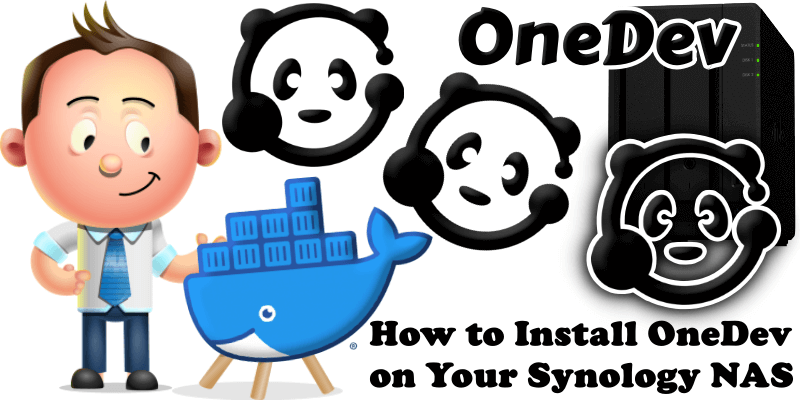
OneDev is an all-in-one DevOps platform that features Git repository management with language-aware code search, issue management with custom states and fields, and a docker-first Kubernetes native build/CI engine. An alternative to GitLab, it is easier to use and maintain, with lots of unique features. In this step by step guide I will show you how to install OneDev on your Synology NAS using Docker & Portainer.
This guide works perfectly with the latest OneDev v14.1.4 release.
STEP 1
Please Support My work by Making a Donation.
STEP 2
Install Portainer using my step by step guide. If you already have Portainer installed on your Synology NAS, skip this STEP. Attention: Make sure you have installed the latest Portainer version.
STEP 3
Make sure you have a synology.me Wildcard Certificate. Follow my guide to get a Wildcard Certificate. If you already have a synology.me Wildcard certificate, skip this STEP.
STEP 4
Go to Control Panel / Login Portal / Advanced Tab / click Reverse Proxy. Follow the instructions in the image below.
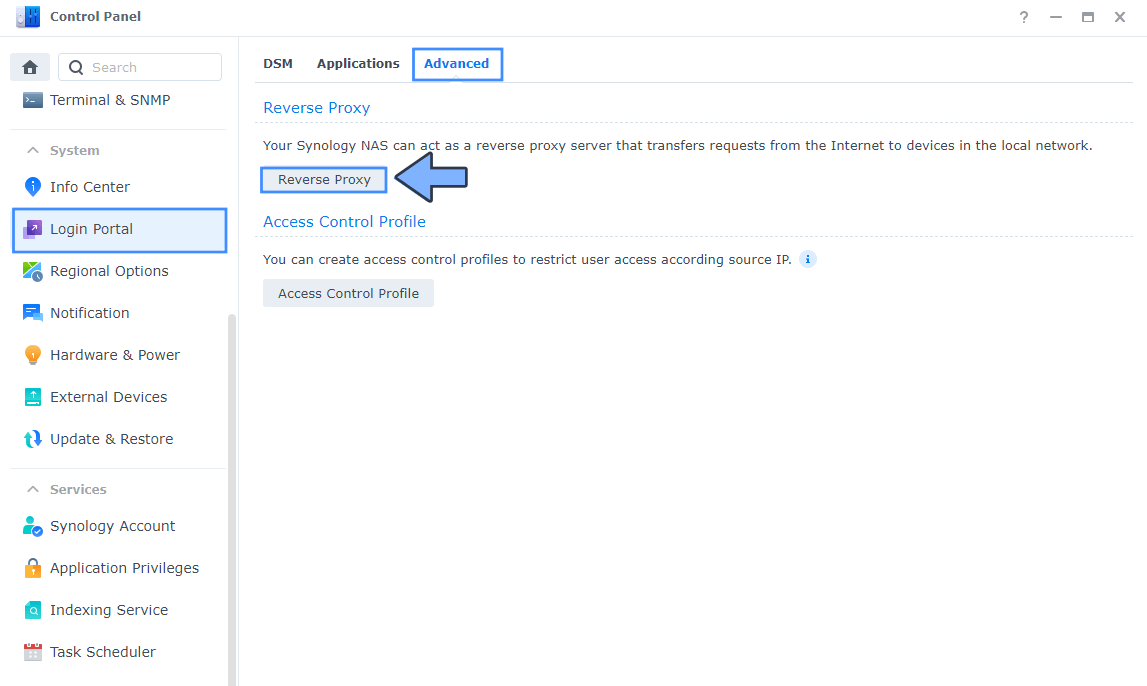
STEP 5
Now click the “Create” button. Follow the instructions in the image below.
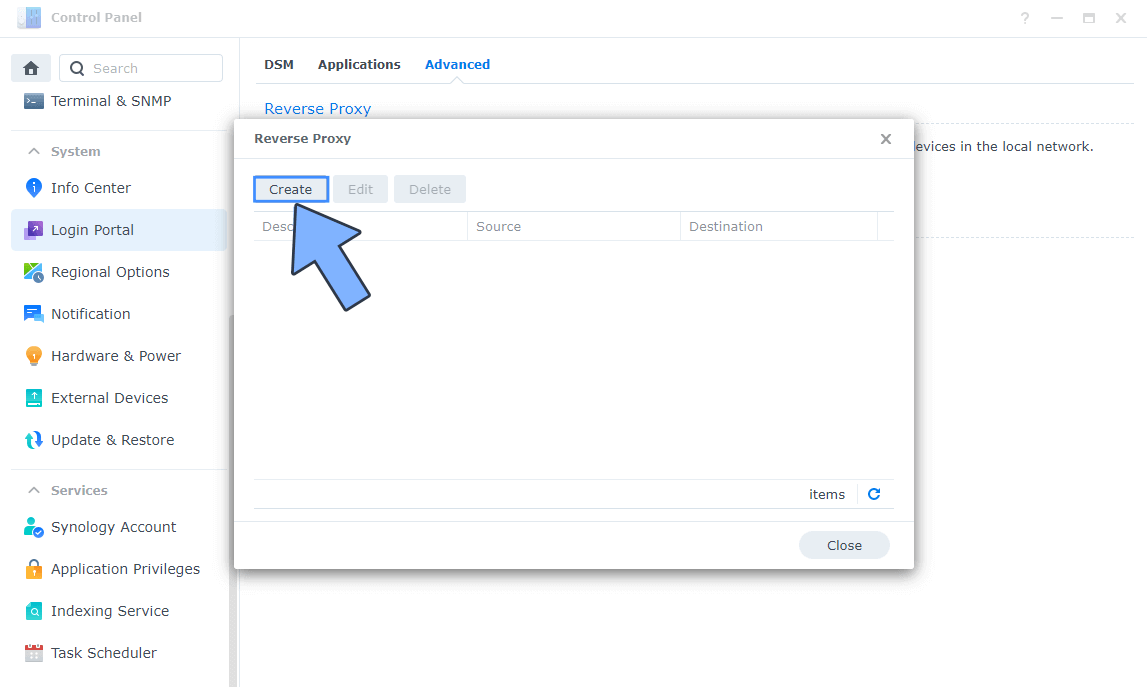
STEP 6
After you click the Create button, the window below will open. Follow the instructions in the image below.
On the General area, set the Reverse Proxy Name description: type in OneDev. After that, add the following instructions:
Source:
Protocol: HTTPS
Hostname: onedev.yourname.synology.me
Port: 443
Check Enable HSTS
Destination:
Protocol: HTTP
Hostname: localhost
Port: 6610
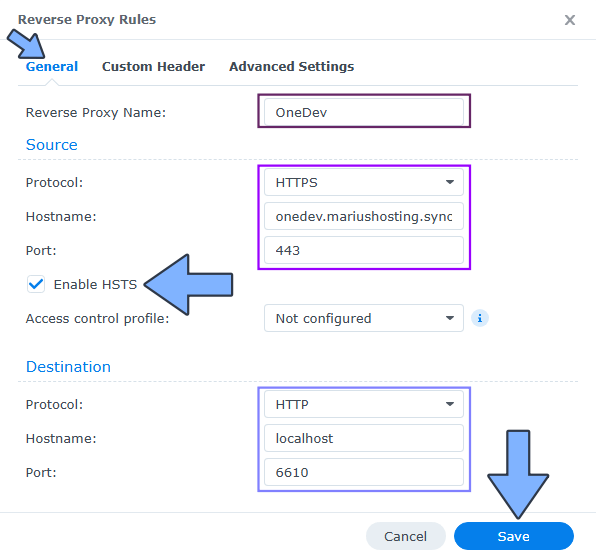
STEP 7
On the Reverse Proxy Rules click the Custom Header tab. Click Create and then, from the drop-down menu, click WebSocket. After you click on WebSocket, two Header Names and two Values will be automatically added. Click Save. Follow the instructions in the image below.

STEP 8
Go to Control Panel / Network / Connectivity tab/ Check Enable HTTP/2 then click Apply. Follow the instructions in the image below.
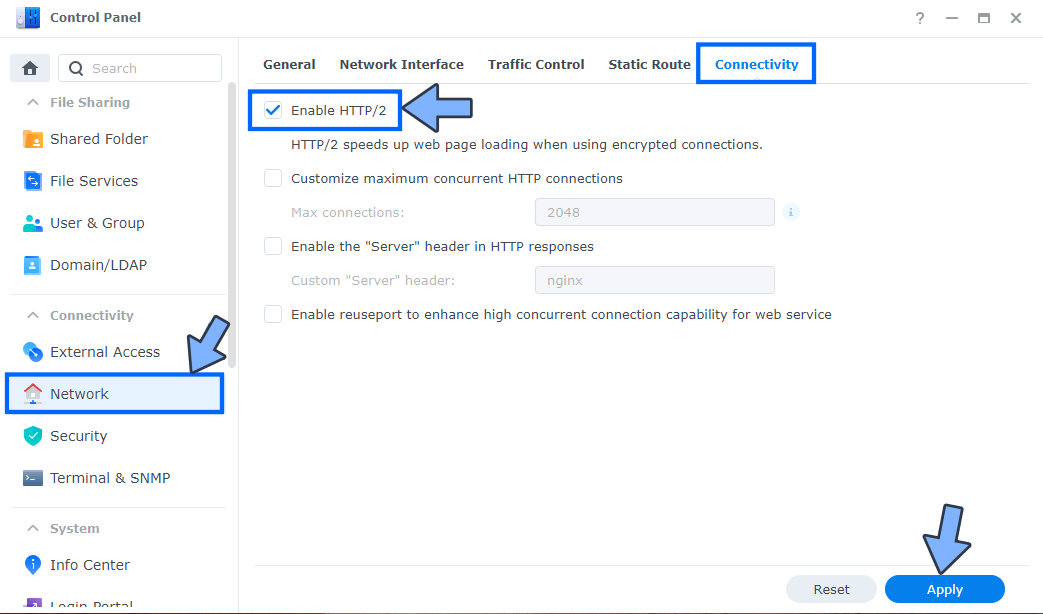
STEP 9
Go to Control Panel / Security / Advanced tab/ Check Enable HTTP Compression then click Apply. Follow the instructions in the image below.
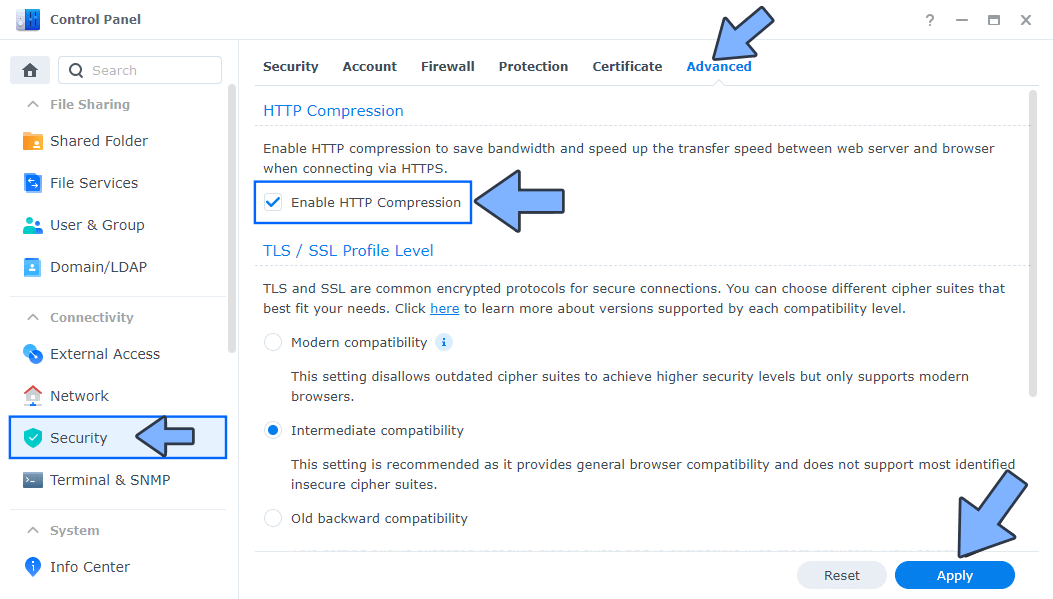
STEP 10
Go to File Station and open the docker folder. Inside the docker folder, create one new folder and name it onedev. Follow the instructions in the image below.
Note: Be careful to enter only lowercase, not uppercase letters.
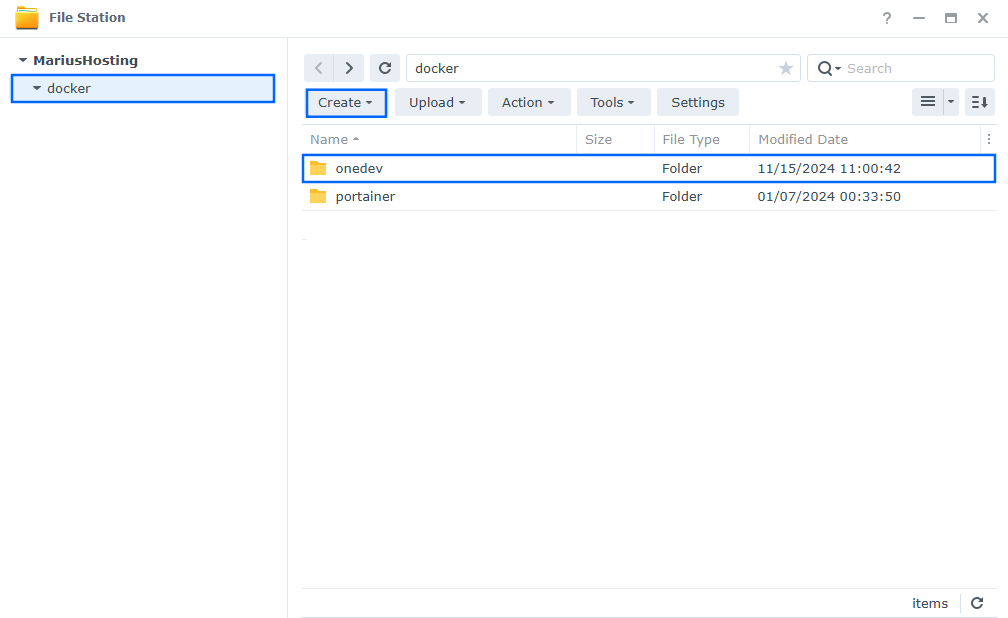
STEP 11
Log into Portainer using your username and password. On the left sidebar in Portainer, click on Home then Live connect. Follow the instructions in the image below.

On the left sidebar in Portainer, click on Stacks then + Add stack. Follow the instructions in the image below.

STEP 12
In the Name field type in onedev. Follow the instructions in the image below.
services:
onedev:
image: 1dev/server:latest
container_name: OneDev
hostname: onedev
healthcheck:
test: timeout 10s bash -c ':> /dev/tcp/127.0.0.1/6610' || exit 1
interval: 10s
timeout: 5s
retries: 3
start_period: 90s
ports:
- 6610:6610/tcp
volumes:
- /etc/localtime:/etc/localtime:ro
- /etc/TZ:/etc/timezone:ro
- /var/run/docker.sock:/var/run/docker.sock:ro
- /volume1/docker/onedev:/opt/onedev:rw
environment:
initial_user: marius
initial_password: mariushosting
initial_email: yourown@email
initial_server_url: https://onedev.yourname.synology.me
restart: on-failure:5
Note: Before you paste the code above in the Run command area below, change the value for initial_user. Add your own username. marius is an example for a username. You should use your own username.
Note: Before you paste the code above in the Run command area below, change the value for initial_password. Add your own password. mariushosting is an example for a password. You should use your own password.
Note: Before you paste the code above in the Run command area below, change the value for initial_email. Add your own Email Address.
Note: Before you paste the code above in the Web editor area below, change the value for initial_server_url and type in your own synology.me DDNS with https:// at the beginning that you have previously created at STEP 6.
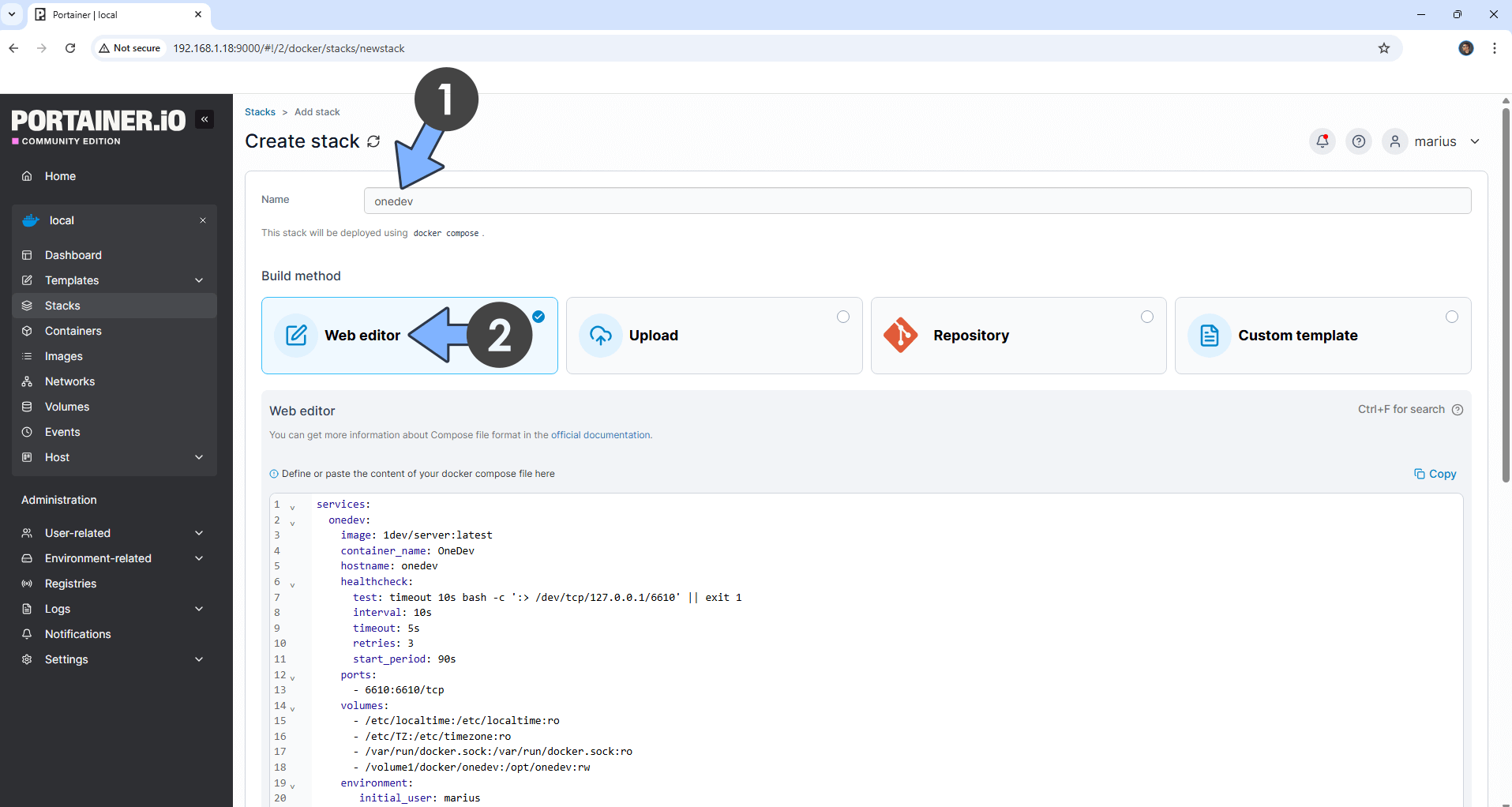
STEP 13
Scroll down on the page until you see a button named Deploy the stack. Click on it. Follow the instructions in the image below. The installation process can take up to a few minutes. It will depend on your Internet speed connection.
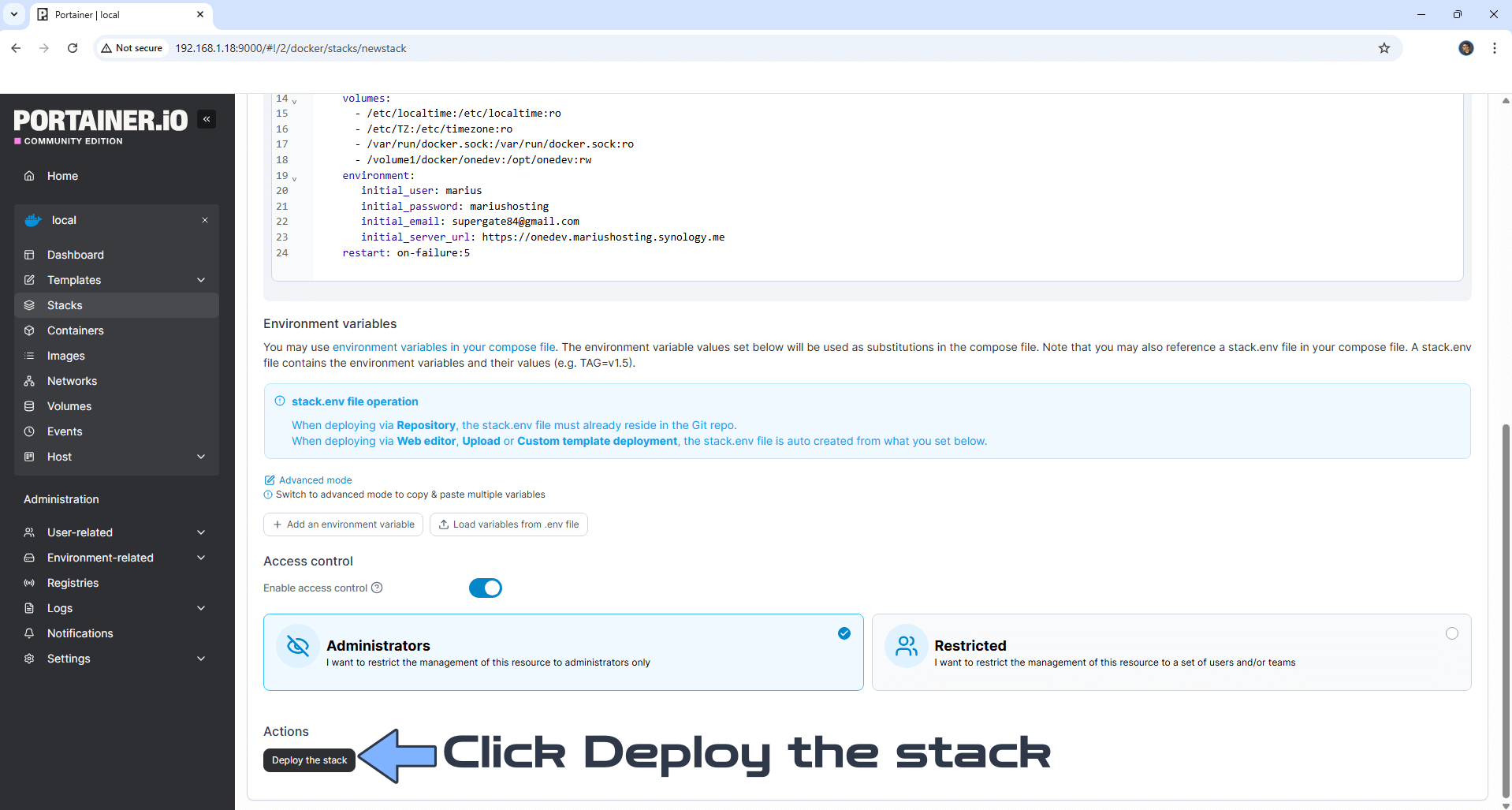
STEP 14
If everything goes right, you will see the following message at the top right of your screen: “Success Stack successfully deployed“.

STEP 15
🟢Please Support My work by Making a Donation. Almost 99,9% of the people that install something using my guides forget to support my work, or just ignore STEP 1. I’ve been very honest about this aspect of my work since the beginning: I don’t run any ADS, I don’t require subscriptions, paid or otherwise, I don’t collect IPs, emails, and I don’t have any referral links from Amazon or other merchants. I also don’t have any POP-UPs or COOKIES. I have repeatedly been told over the years how much I have contributed to the community. It’s something I love doing and have been honest about my passion since the beginning. But I also Need The Community to Support me Back to be able to continue doing this work.
STEP 16
Now open your browser and type in your HTTPS/SSL certificate like this https://onedev.yourname.synology.me that you have previously created at STEP 6. In my case it’s https://onedev.mariushosting.synology.me Type in your own Username (initial_user) and Password (initial_password) that you have previously added at STEP 12, then click Sign in. Follow the instructions in the image below.
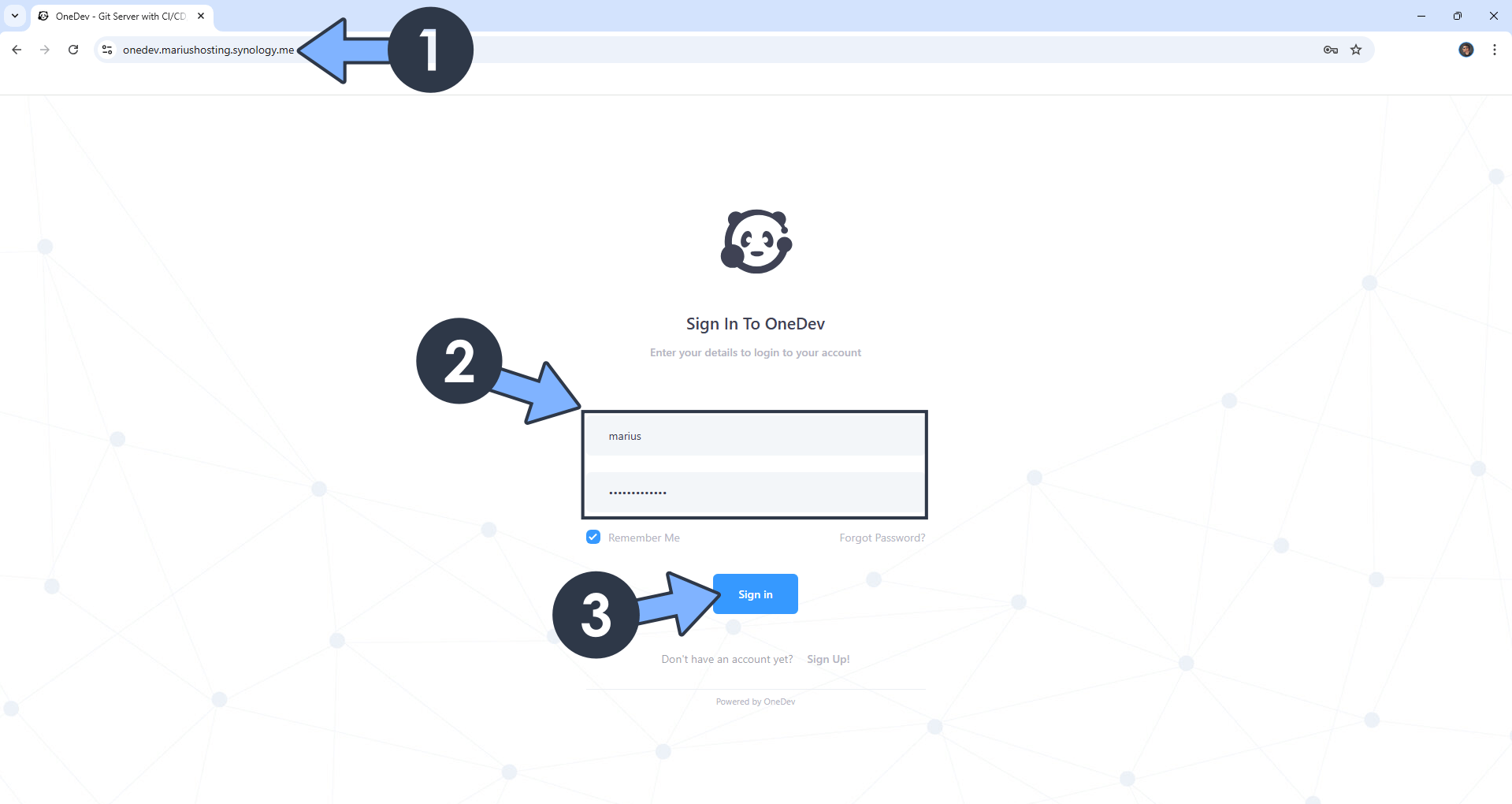
STEP 17
Your OneDev dashboard at a glance!
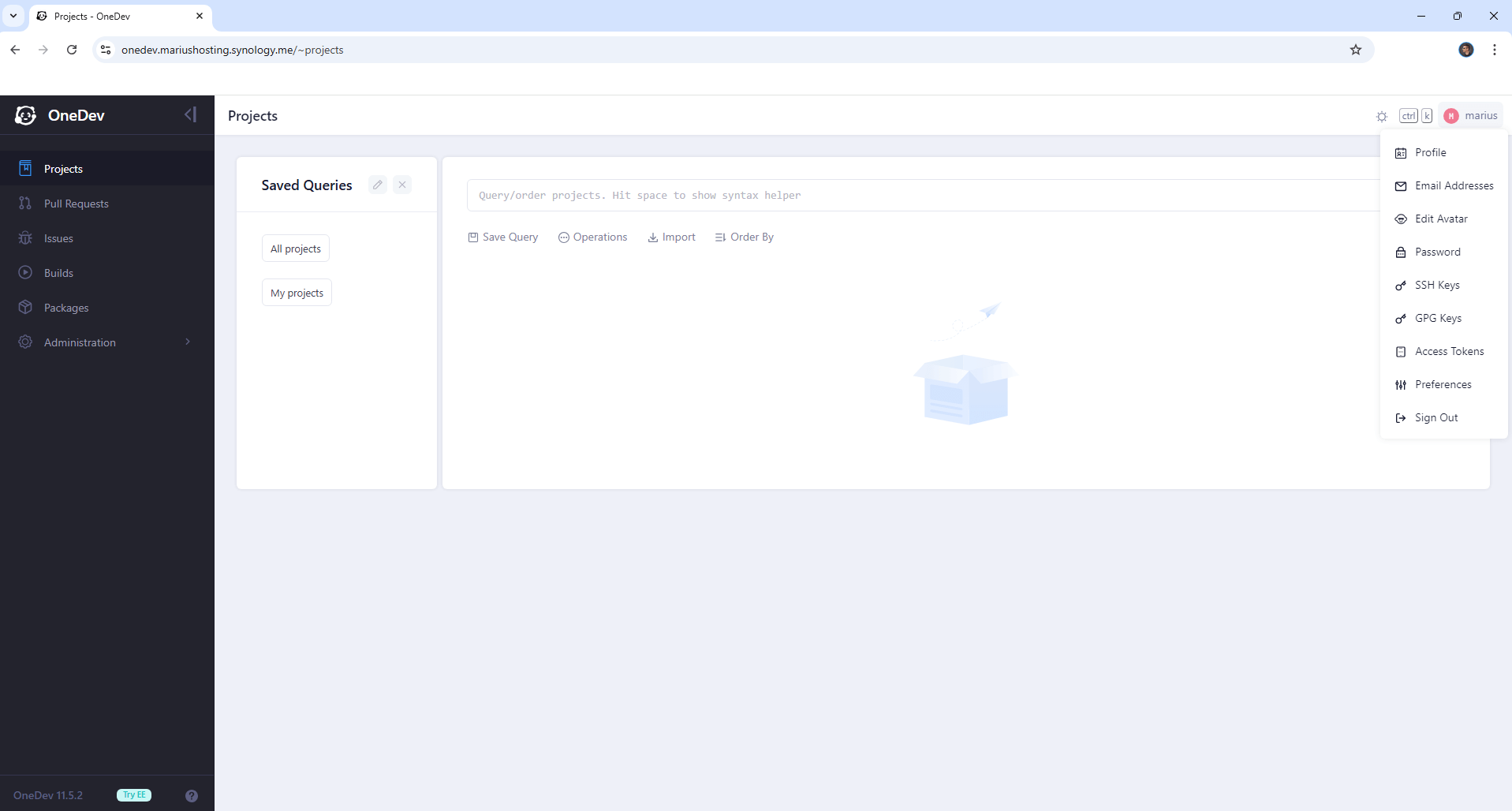
Enjoy OneDev!
If you encounter issues by using this container, make sure to check out the Common Docker issues article.
Note: Can I run Docker on my Synology NAS? See the supported models.
Note: How to Back Up Docker Containers on your Synology NAS.
Note: Find out how to update the OneDev container with the latest image.
Note: How to Free Disk Space on Your NAS if You Run Docker.
Note: How to Schedule Start & Stop For Docker Containers.
Note: How to Activate Email Notifications.
Note: How to Add Access Control Profile on Your NAS.
Note: How to Change Docker Containers Restart Policy.
Note: How to Use Docker Containers With VPN.
Note: Convert Docker Run Into Docker Compose.
Note: How to Clean Docker.
Note: How to Clean Docker Automatically.
Note: Best Practices When Using Docker and DDNS.
Note: Some Docker Containers Need WebSocket.
Note: Find out the Best NAS Models For Docker.
Note: Activate Gmail SMTP For Docker Containers.
This post was updated on Tuesday / February 10th, 2026 at 2:45 PM
